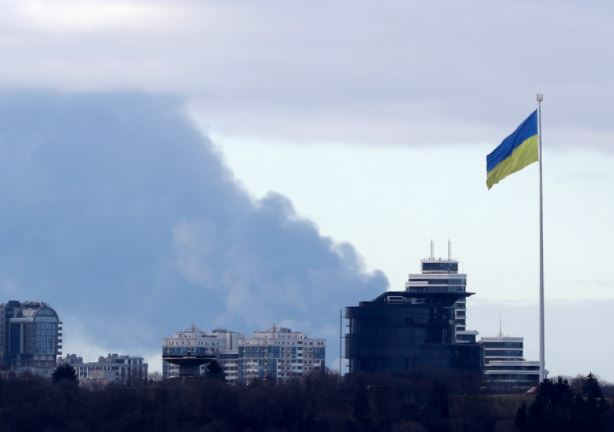West playing old political game in Ukraine
By Mario Cavolo | CHINA DAILY | Updated: 2022-04-08 07:21

It appears Western societies, in the grip of a pandemic of neoliberal virtue, have given a new meaning to the Chinese phrase guo fenle, often expressed when someone has gone over the line, or has stepped beyond reason.
Let's consider an example. Imagine all the companies of country A pulling out of country B because A believes B's leaders are corrupt or international rule breakers or war-mongers or all of the three. Or, all the other countries banning the writers, poets, painters, sculptors, composers, and performing artists from country A, and boycotting its products and services.
We are reminded of the days when the United States put Japanese families in internment camps suspecting them to be spies or enemies of the US when we see some European politicians, theaters, universities and other institutions calling for a ban on Dostoevsky's classics and Tchaikovsky's works, and Russian opera superstar Anna Netrebko being barred from performing in the West for the "war crimes" committed by Russian politicians.
Yet the West or any other region or country has never given a call for boycotting American citizens or products for the US' illegal invasions of Iraq and other countries.
Will barring Netrebko from performing or prohibiting European people, especially students, from reading Dostoevsky help solve all our geopolitical problems and prevent the deaths of innocent civilians in Ukraine?
Or, if American citizens could only eat their own food or use their own products, would the US government lift the sanctions on Cuba, the Democratic People's Republic of Korea and Venezuela, not to mention halt the drone strikes that regularly kill innocent civilians in some countries?
From renowned brands of computers, mobile phones and clothing to cars, motorcycles, sneakers, even aircraft parts, apparently the neoliberal Western craze called virtue signaling has reached new heights of purpose and usefulness in the name of saving humankind from itself.
Or has it really? Because on a closer look, we find those trying to claim the moral high ground are motivated not by their belief in doing the right thing but by the fear of being bullied by consumer boycotts.
I was wondering whether someone would punish me (an American citizen) for US President Joe Biden giving the go-ahead to the US military to launch a drone strike which killed an entire Afghan family two months ago. But nobody suggested that US citizens be punished for the massacres committed by the Pentagon in the past more than seven decades.
Is the West penalizing anyone for the continuing attacks on Yemen, using weapons purchased from the US military industries for billions of dollars? Who is responsible for the starving Yemeni children and the deaths of thousands of Yemeni people?
This indeed is a bewildering, surreal geopolitical landscape, where the pots have made it a habit of calling the kettles black, as some are blaming China, which has for the past 40-odd years focused on peaceful development, for not stopping Putin from ordering the "special military operation" in Ukraine.
And how can Beijing play peacemaker with NATO breathing down Putin's neck along the Russian border? How would Washington react if a flotilla of another country's warships were to patrol the California coast?
China has been calling for a peaceful resolution to the Ukraine crisis and asking all parties to exercise restraint and not add fuel to the flames, something which Lockheed Martin and other US defense contractors are unlikely to heed, because that would prevent them from making billions of dollars in profits.
If the US and its NATO allies were truly interested in resolving the Ukraine crisis, they would be doing far more than punishing innocent Ukraine civilians and encouraging people in the US and other Western countries to boycott Russian products, services and artists.
The author is an American writer living in China and a senior fellow at the Center for China and Globalization.
The views don't necessarily reflect those of China Daily.
If you have a specific expertise, or would like to share your thought about our stories, then send us your writings at opinion@chinadaily.com.cn, and comment@chinadaily.com.cn.
























